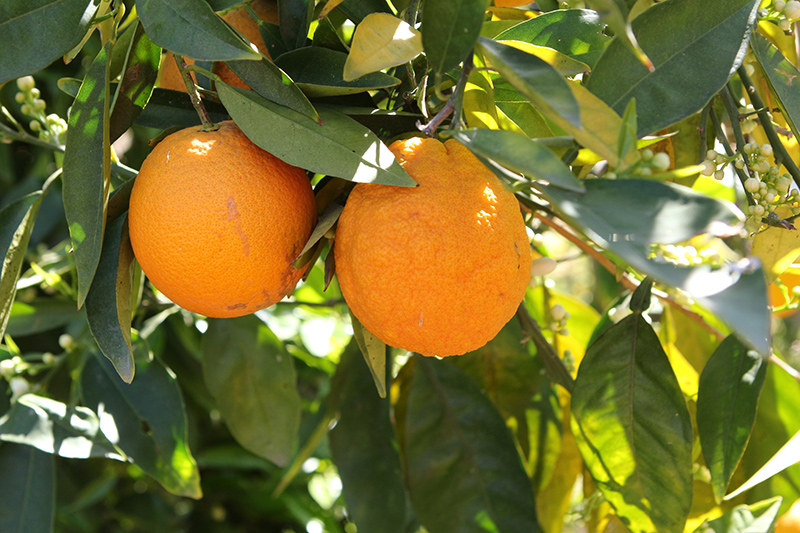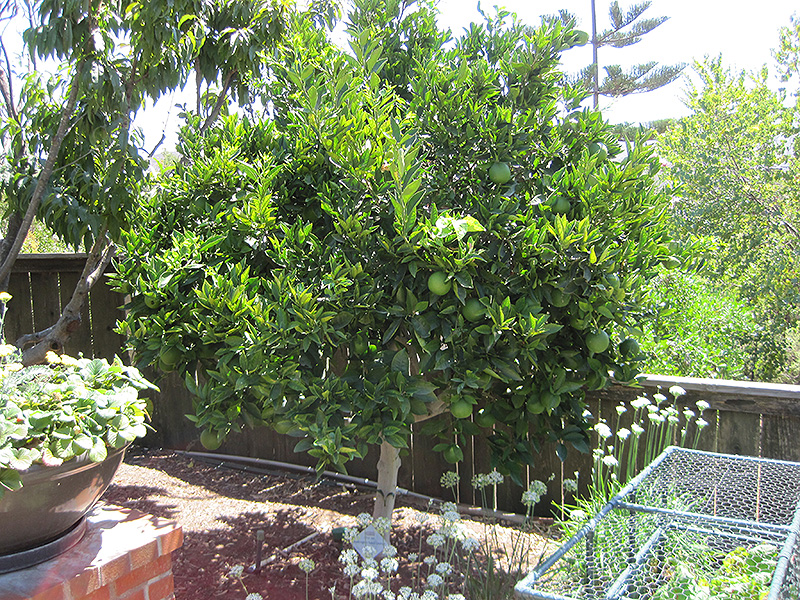>> Home
Washington Navel Orange
Citrus sinensis 'Washington Navel'
Height: 8 feet
Spread: 6 feet
Sunlight:
![]()
![]()
Description:
An attractive tree that bears seedless winter fruit that peels easily and has a wonderful sweet flavor; a great container plant for the patio or indoors in colder climates
Features & Attributes
Washington Navel Orange features showy clusters of fragrant white star-shaped flowers at the ends of the branches in early spring. Its attractive glossy oval leaves remain dark green in color throughout the year. The large orange round fruit is edible and has a sweet taste. Note that in general, it can be difficult to get plants to reliably produce fruit indoors; this may be a challenge best reserved for adventurous and experienced gardeners.
This is a multi-stemmed evergreen houseplant with an upright spreading habit of growth. This plant may benefit from an occasional pruning to look its best.
Planting & Growing
When grown indoors, Washington Navel Orange can be expected to grow to be about 8 feet tall at maturity, with a spread of 6 feet. It grows at a medium rate, and under ideal conditions can be expected to live for approximately 50 years. This houseplant will do well in a location that gets either direct or indirect sunlight, although it will usually require a more brightly-lit environment than what artificial indoor lighting alone can provide. It does best in average to evenly moist soil, but will not tolerate standing water. The surface of the soil shouldn't be allowed to dry out completely, and so you should expect to water this plant once and possibly even twice each week. Be aware that your particular watering schedule may vary depending on its location in the room, the pot size, plant size and other conditions; if in doubt, ask one of our experts in the store for advice. It is not particular as to soil type or pH; an average potting soil should work just fine.
There are many factors that will affect the ultimate height, spread and overall performance of a plant when grown indoors; among them, the size of the pot it's growing in, the amount of light it receives, watering frequency, the pruning regimen and repotting schedule. Use the information described here as a guideline only; individual performance can and will vary. Please contact the store to speak with one of our experts if you are interested in further details concerning recommendations on pot size, watering, pruning, repotting, etc.
-- THIS IS A HOUSEPLANT AND IS NOT MEANT TO SURVIVE THE WINTER OUTDOORS IN OUR CLIMATE --

